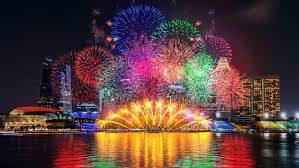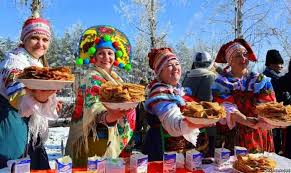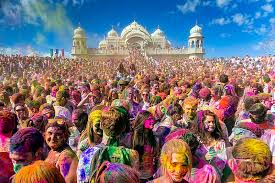Festivals are a vibrant expression of culture, tradition, and community. They offer an opportunity for people to come together, celebrate their heritage, and experience the joy of shared experiences. Across the globe, festivals reflect the diversity of human culture, with each celebration showcasing unique customs, art, food, and music. In this article, we explore some of the most iconic festivals from around the world that bring people together and celebrate life in all its forms.
The Power of Festivals: More Than Just Celebrations
Festivals are much more than just parties; they are a profound expression of tradition, identity, and community. They offer a sense of belonging, foster cultural exchange, and create lasting memories. Whether it’s through music, dance, food, or religious rituals, festivals celebrate both the diversity and commonality of the human experience.
1. Carnival in Rio de Janeiro, Brazil
Carnival in Rio de Janeiro is arguably one of the most famous and colorful festivals in the world. Held annually before Lent, Carnival is a vibrant celebration marked by spectacular parades, samba music, and extravagant costumes. The city’s streets come alive with dancers, musicians, and revelers from all walks of life.
- What Makes It Special: The samba schools in Rio compete in grand parades, creating dazzling displays of music, dance, and stunning floats. The entire city becomes a massive party, with street festivities and concerts throughout the week.
- Cultural Significance: Carnival is a blend of Brazilian indigenous, African, and Portuguese traditions, showcasing the cultural melting pot that is Rio de Janeiro.
2. Diwali: The Festival of Lights in India
Diwali, also known as Deepavali, is one of the most widely celebrated festivals in India. This Hindu festival, often referred to as the “Festival of Lights,” symbolizes the victory of light over darkness and good over evil. Diwali is celebrated by millions across India and by Indian communities around the world.
- What Makes It Special: The festival is marked by the lighting of oil lamps (diyas), the bursting of fireworks, and the exchange of sweets and gifts. People also clean and decorate their homes, symbolizing the welcoming of prosperity and happiness.
- Cultural Significance: Diwali has religious importance in Hinduism, Sikhism, Buddhism, and Jainism, each of which celebrates different aspects of the festival. It is a time for families to come together, celebrate, and give thanks.
3. Oktoberfest in Munich, Germany
Oktoberfest, held annually in Munich, Germany, is the world’s largest beer festival. It attracts millions of visitors from around the world who come to enjoy traditional Bavarian beer, food, music, and folklore.
- What Makes It Special: The festival spans 16-18 days, and festival-goers gather in large beer tents to enjoy Bavarian lagers, pretzels, sausages, and other local delicacies. Traditional Bavarian music fills the air, and people often dress in lederhosen (leather pants) and dirndls (traditional dresses).
- Cultural Significance: Oktoberfest is not just about beer; it is a celebration of Bavarian heritage, community, and hospitality. It’s a time to connect with friends and strangers alike while enjoying traditional German cuisine and music.
4. Chinese New Year
Chinese New Year, also known as the Spring Festival, is one of the most important traditional festivals in China. It marks the beginning of the lunar new year and is a time for family reunions, festive meals, and cultural performances.
- What Makes It Special: The festival is filled with vibrant red decorations, fireworks, dragon and lion dances, and family gatherings. The iconic red envelopes (lai see) are given to children and unmarried adults, symbolizing good luck and prosperity.
- Cultural Significance: Chinese New Year is steeped in centuries of tradition and mythology, with various customs meant to bring good fortune, health, and wealth for the coming year. The festival is celebrated by Chinese communities worldwide.
5. La Tomatina in Buñol, Spain
La Tomatina is one of the world’s most unique and chaotic festivals. Held annually in Buñol, Spain, it is a massive food fight where participants throw tomatoes at each other in the streets.
- What Makes It Special: The festival kicks off with a “tomato fight” that lasts for about an hour, and participants often find themselves drenched in tomato pulp. Thousands of people come from all over the world to join in the fun and laughter.
- Cultural Significance: While La Tomatina began as a playful act during a local festival in the 1940s, it has grown into a major tourist attraction, attracting festival-goers from all corners of the globe.
6. Mardi Gras in New Orleans, USA
Mardi Gras in New Orleans is a lively and colorful festival that features parades, masquerade balls, music, and exuberant celebrations. Held in the weeks leading up to Lent, Mardi Gras has become a symbol of New Orleans’ rich cultural history.
- What Makes It Special: The Mardi Gras parades are a highlight, with massive floats, costumed revelers, and bead-throwing. People take part in street parties, dancing to jazz, blues, and brass band music.
- Cultural Significance: Mardi Gras combines French, African, and Catholic traditions, and it’s a celebration of both indulgence and community spirit before the solemn period of Lent.
7. The Running of the Bulls in Pamplona, Spain
The Running of the Bulls, part of the San Fermín Festival in Pamplona, Spain, is one of the most exciting (and dangerous) festivals in the world. Every July, brave participants run through the streets ahead of a herd of bulls, culminating in a dramatic bullfight.
- What Makes It Special: The festival is famous for its thrill and adrenaline, as participants race against the bulls through narrow, cobblestone streets. The event attracts spectators and runners from around the world.
- Cultural Significance: While controversial due to its ties to bullfighting, the Running of the Bulls is a deeply rooted tradition in Spanish culture, dating back to the early 14th century.
8. Holi: The Festival of Colors in India
Holi is a vibrant and joyful festival celebrated primarily in India but also in other parts of the world. It marks the arrival of spring and the victory of good over evil. People celebrate by throwing colorful powders, dancing, singing, and feasting.
- What Makes It Special: Holi is a joyous, carefree celebration where people of all ages and backgrounds come together to play with colors, dance to traditional music, and enjoy sweets.
- Cultural Significance: Holi is deeply rooted in Hindu mythology and symbolizes the triumph of love and the destruction of evil forces. It is a time to forgive past grievances and rebuild relationships.
Conclusion: Festivals as a Global Language of Celebration
Festivals are a powerful reflection of cultural diversity, community, and tradition. From the explosive energy of Carnival in Rio to the spiritual peace of Diwali in India, these global celebrations unite people in ways that transcend language, nationality, and religion. Whether through dance, food, or music, festivals offer a unique glimpse into the heart of humanity.
The beauty of festivals lies in their ability to bring joy, foster connections, and celebrate life’s most profound experiences. So, the next time a festival comes around—wherever you are—take the opportunity to join in the celebration and immerse yourself in the rich tapestry of human culture.
Keywords: global festivals, iconic festivals, cultural celebrations, Diwali, Carnival, Chinese New Year, Oktoberfest, La Tomatina, Mardi Gras, Holi, Running of the Bulls, traditional festivals, world celebrations, food festivals, music festivals, festival traditions, multicultural festivals, community celebrations, unique festivals, colorful festivals, festival tourism, holiday celebrations, international festivals, global events, traditional customs, cultural heritage, festive atmosphere, global diversity, festive experiences, celebration of life, traditions and cultures.





